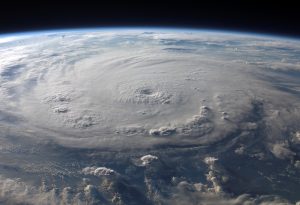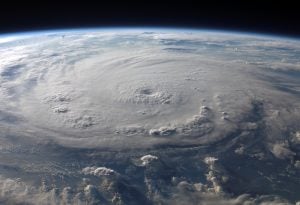 Natural disasters can strike at any time. This week, no one knows that better than the residents of North and South Carolina. As we brace for impact, we cannot help but think of the thousands of small business owners who will face a new reality next week: how to keep business running after a natural disaster strikes.
Natural disasters can strike at any time. This week, no one knows that better than the residents of North and South Carolina. As we brace for impact, we cannot help but think of the thousands of small business owners who will face a new reality next week: how to keep business running after a natural disaster strikes.
Unfortunately, not all small businesses do. The vast majority of small businesses don’t have a disaster plan in place, which means that 40% of them don’t reopen after a natural disaster due to the astronomical cost of repairing damages. And, if they do reopen, the road to “back to normal” is long: 52% of small business owners estimate a recovery period of at least three months.
Regardless of the steps you’ve taken to disaster-proof your business, you’ll still need a plan in place to get you back up and running quickly. Here are our best tips:
Don’t disappear.
Stay in contact with employees, clients, and vendors. Make sure you have all of their contact information with you, wherever you ride out the storm, so you can communicate operational changes and ensure they made it through the disaster, too. Keep in mind that mail and other delivery services can be disrupted during natural disasters, and your ability to cut paper checks may be delayed if you don’t have access to your office. Keep vendors, contractors, and even employees (if you pay them that way) in the loop, and resolve to get these payments to the rightful recipients ASAP. Note that there are laws in place regarding payments owed in disaster-affected areas. Ignore them, and you could face serious legal issues.
Communicate your situation with your lender, too, by proactively calling your primary bank/creditor to let them know you have an emergency situation. Most of the time they will work with you to defer payments and waive fees until you’re back on your feet.
Ask for help if you need it.
If your cash reserves aren’t enough to get you through, the Small Business Administration has two loan programs to help businesses with disaster relief. One is for physical damages -- with interest rates not exceeding 4% and terms up to 30 years -- and the other is for economic injury, which covers expenses you would have been able to pay before the disaster struck. Businesses can borrow up to $2M with these loans. The USDA also offers a loan program to help farmers and ranchers rebuild from farm-related losses.
If those options don’t pan out, give us a call. We can assist you in securing one of many short-term working capital loans or lines of credit that will get you back on your feet.
Be part of the solution.
For some businesses -- hotels, tree removal companies, insurance brokers, auto-repair shops, and more -- a natural disaster means the start of an incredibly busy season. For many others, it can be the start of an incredibly slow season...that is if they don’t think creatively.
Consider a construction company whose current projects were just canceled (or severely postponed) due to a natural disaster. It could shut down operations for a few weeks, hoping it can get back to work quickly, or it could spring into action and seek to fill the demand for demolition, clean-up, restoration, and rebuilding. A restaurant with a damaged seating area could turn to catering and meal delivery post-disaster. The point is to think outside the box and keep the company moving forward.
Finally, don’t neglect your corporate responsibility. Your business is part of the community, and you need to part its recovery, even if you can’t make money following the disaster. Volunteerism, if nothing else, is good for the soul (personal and corporate). If we can’t convince you based on good feelings alone, then do it for your brand, which will get a valuable boost in public opinion if you’re out there rebuilding after a disaster. Look no further than Anheuser Busch, which has repeatedly converted a significant portion of its beer-making operations to canning fresh water and donating it to disaster victims. They’ve done so without great fanfare, but the media has run with it more than once, and the goodwill they have generated for their brand far surpasses the money they could have made simply selling beer during those times.
Be safe out there. Take care of yourself, your family, your employees, and your community in the days to come. We’ll be here to help you rebuild, too.




